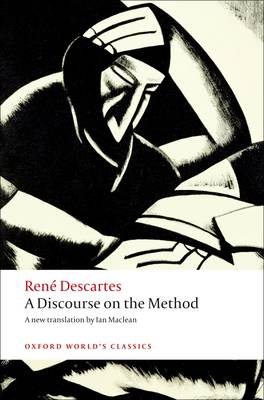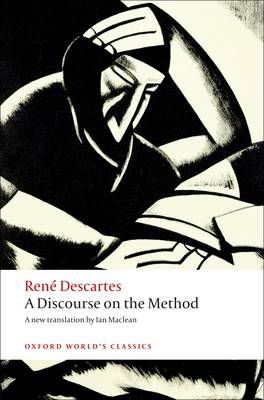
- Afhalen na 1 uur in een winkel met voorraad
- Gratis thuislevering in België vanaf € 30
- Ruim aanbod met 7 miljoen producten
- Afhalen na 1 uur in een winkel met voorraad
- Gratis thuislevering in België vanaf € 30
- Ruim aanbod met 7 miljoen producten
Zoeken
A Discourse on the Method
of Correctly Conducting One's Reason and Seeking Truth in the Sciences
René Descartes, Ian MacLean
€ 12,95
+ 25 punten
Omschrijving
Descartes' Discourse marks a watershed in European thought; in it, the author sets out in brief his radical new philosophy, which begins with a proof of the existence of the self (the famous "cogito ergo sum"). Next he deduces from it the existence and nature of God, and ends by offering a radical new account of the physical world and of human and animal nature. Written in everyday language and meant to be read by common people of the day, it swept away all previous philosophical traditions. This new translation is an ideal introduction to Descartes for the general reader. It is accompanied by a substantial introductory essay from Renaissance scholar Ian Maclean that is designed to provide in-depth historical and philosophical context. The essay draws on Descartes' correspondence to examine what brought him to write his great work, and the impact it had on his contemporaries. A detailed section of notes explain Descartes' philosophical terminology and ideas, as well as historical references and allusions. Any reader can feel comfortable diving in to this classic work of Renaissance philosophical thought. About the Series: For over 100 years Oxford World's Classics has made available the broadest spectrum of literature from around the globe. Each affordable volume reflects Oxford's commitment to scholarship, providing the most accurate text plus a wealth of other valuable features, including expert introductions by leading authorities, voluminous notes to clarify the text, up-to-date bibliographies for further study, and much more.
Specificaties
Betrokkenen
- Auteur(s):
- Vertaler(s):
- Uitgeverij:
Inhoud
- Aantal bladzijden:
- 160
- Taal:
- Engels
- Reeks:
Eigenschappen
- Productcode (EAN):
- 9780199540075
- Verschijningsdatum:
- 15/06/2008
- Uitvoering:
- Paperback
- Formaat:
- Trade paperback (VS)
- Afmetingen:
- 130 mm x 195 mm
- Gewicht:
- 131 g

Alleen bij Standaard Boekhandel
+ 25 punten op je klantenkaart van Standaard Boekhandel
Beoordelingen
We publiceren alleen reviews die voldoen aan de voorwaarden voor reviews. Bekijk onze voorwaarden voor reviews.











